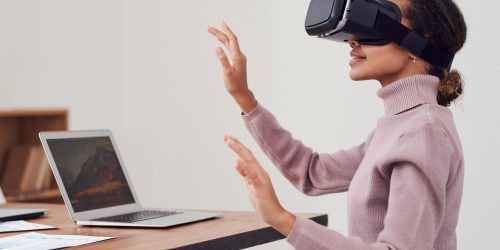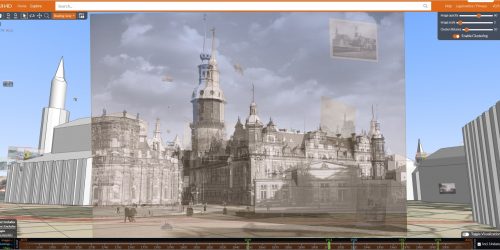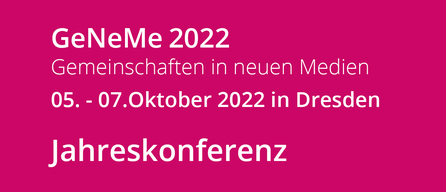CODIP supports immersive virtual exchange of nutritionists
The Federal Working Group for Vocational Training in the Field of Nutrition and Home Economics (BAG E&H) organizes an annual Winter School, which offers teachers and students of this department from all over Germany a platform for cross-university exchange, networking activities and the opportunity to get to know new colleagues and didactic practices. The Junior Professorship for Nutrition and Household Science as well as the Didactics of the Professional Field the Technical University of Dresden (under the direction of Prof. Dr. Jana Markert). It used its network with the Center of Open Digital Innovation and Participation (CODIP) to offer the participants of the winter school, which usually takes place virtually, a novelty: For the first time, it took place in the immersive social virtual reality (VR) environment “TriCAT Spaces”, which the CODIP is developing in the BMBF-funded project “Connecting a Virtual Immersive 3D Learning Platform to the NBP using the domain example of an educational provider (AVILAB2)” currently in the context of scientific meetings as a promising format for "MyEducationSpace" tested.
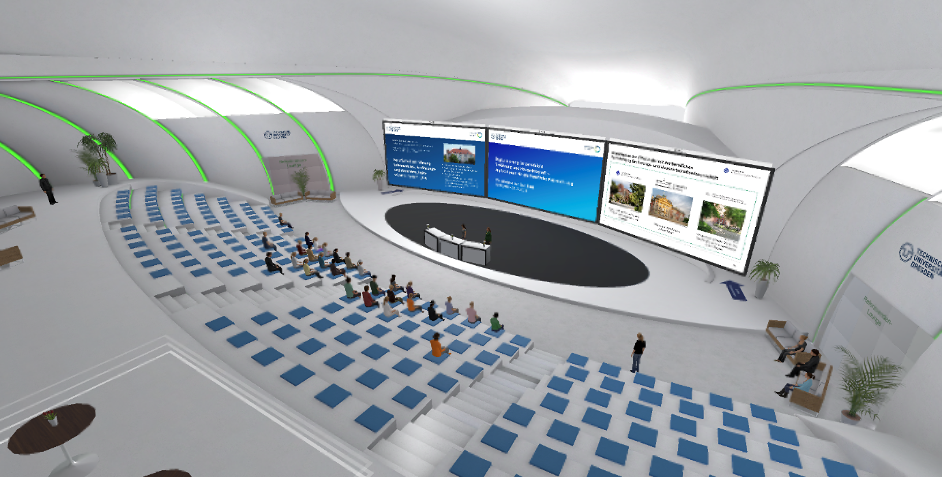
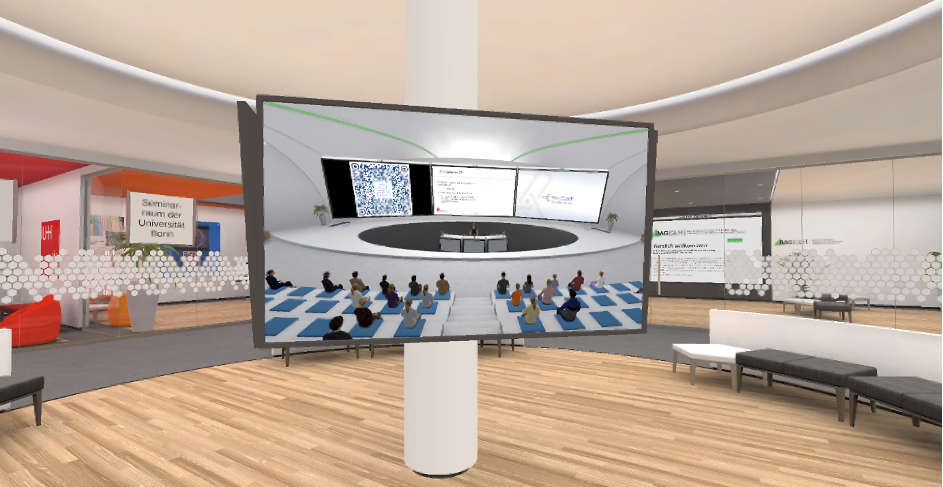
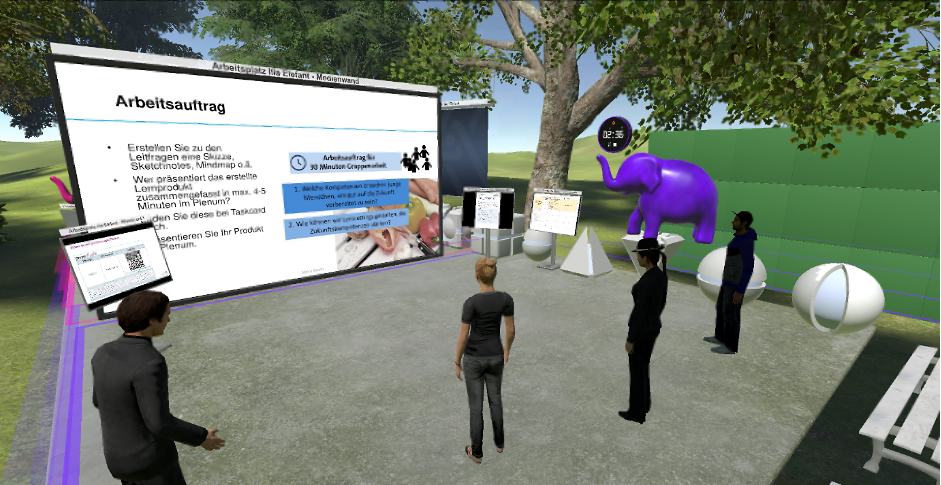
In keeping with this, this year’s Winter School of the BAG E&H, the planning of which began in October 2023 under the coordination of Ms. Christiane Klatt, was dedicated to the topic "Digitalisation in the field of nutrition and home economics – implications for professional didactics”. 48 teachers and students from a total of seven German universities took part in the virtual "TriCAT Spaces"-rooms and came into "first hand" contact with digitalization in the teaching-didactic environment by moving through and interacting with the realistic and diversely designed event world with an individually adapted avatar. The environment was designed for all four days of the event in such a way that a conference atmosphere that was as close to reality as possible was created with presentations, breakout rooms for interactive workshops with group work assignments, and rooms for the exchange and networking of the actors. For this purpose, two large conference rooms (see Figure 1) with a "trade fair" area for the individual presentation of the participating institutions (see Figure 2) as well as seminar rooms with large outdoor facilities (see Figure 3) were available, which were also extensively prepared and used for didactic activities.
Each of the four days of the event dealt with a different focus of the event topic. On the first day, digital learning platforms, project-based learning processes and inclusion methods of digitalization were examined. Afterwards, Bianca Sosath (University of Hamburg) about the digital learning platform “Digital Sparks“, opportunities for project-based learning and deeper learning processes that can help to creatively overcome complex challenges. Christiane Klatt and Mary-Ann Bieber-Müller (TU Dresden) provided an insight into inclusive teaching and learning media using the example of a work process-mapping, language-sensitive and digital excursion to communal catering (see Figure 6). The second day was dedicated to gamification and digital learning games in teaching. Prof. Dr. Julia Kastrup and Marie Nölle-Krug (FH Münster) and Prof. Dr. Alexandra Brutzer (University of Bonn) spoke about game-based learning, serious games and possible uses of game-based learning tools such as LEGO® Serious Play® in vocational training. Dr. Christian Stein (Humboldt University Berlin) presented approaches for the implementation of games and gamification in education, science and everyday life and gave insights into the work of the research and development platform "gamelab.berlin" at Humboldt University, where research is carried out into games as a cultural technique and serious games are developed for science and society.
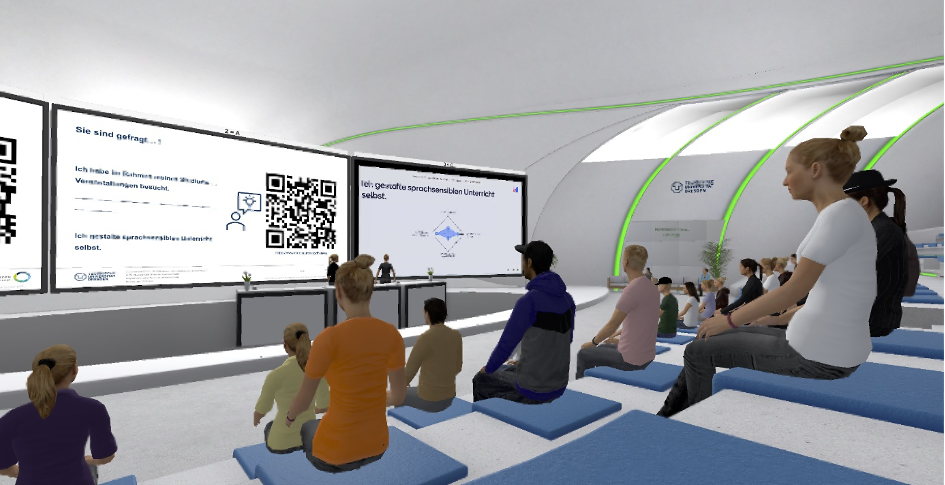
The third day of the BAG Winter School focused on practical digital collaboration tools. Stephanie Grundmann (TU Berlin) spoke about the establishment of cooperation laboratories in which theory and practice or specialist science, subject didactics and educational science are (better) interlinked in order to link university teaching in an interdisciplinary manner. Sandra Härtel (TU Dresden) presented a property management system as an example of industry-specific software applications in higher education. In the last item on the agenda of the day, Carolin Lohse and Dr. Christiane Buchholtz (TU Berlin) presented a digital feedback tool for debriefings during students' practical semesters. Participants were able to test the tool themselves at several workstations in the virtual garden world. The presentations and workshops on the last day of the event focused on the topic of artificial intelligence (AI). Prof. Dr. phil. Marc Krüger (FH Münster) provided an exciting insight into how AI can be used effectively in vocational training. Prof. Dr. Julia Kastrup (FH Münster) about didactic considerations and prompt engineering from the perspective of students and teachers. The Winter School concluded with a final meeting in which the participants gave digital feedback on the event and were bid farewell by the organizers.
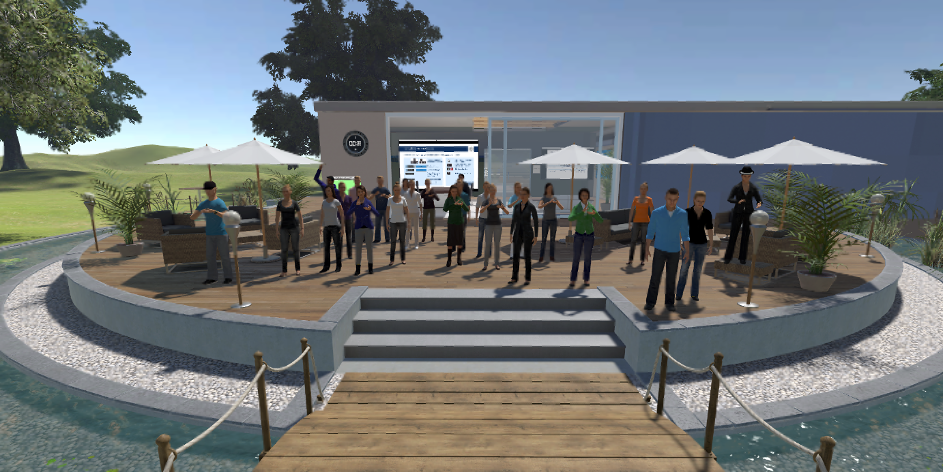
Throughout the entire event, it was clear that all participants found the immersive environment appealing and actively used it. The organizers' conclusion about the Winter School was also very positive, so that overall it can be said that the event was a complete success.
Authors: Richard Joos and Jonathan Dyrna
Current publications
Dyrna, J., Lorenz, R., Galarce Miranda, C., Heitz, R., Köhler, T. (2023). Social VR as an approach to foster collaboration among scientists and educators within the networked infrastructure for education. E-learning & Education, Special Issue.
Funding information:


